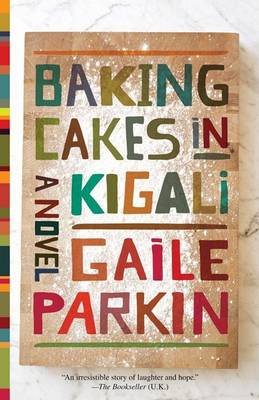Reviewed by Heather on
There is not an overall plot to the book. People come to order a cake and we hear about their lives in post-genocide Rwanda. Some are survivors of the massacre. Others have family members in prison for participating in it. Some have come to help with the international reconstruction efforts (and to earn extra money for living in a "dangerous" area which confuses Angel who feels perfectly safe.)
This format allows discussion of the role of AIDS in central African society. Do you talk about it? If so, how? Do you acknowledge when people are sick and tell the truth about what they have?
How do you encourage women, expat and native Rwandan, to make more of their lives especially when there is so much misogyny? One of the first encounters is for a cake for a baby's birth. They wanted a boy but this daughter is cute so they named her Goodenough.
The compound security guard has impregnated two women. One has already given birth to a boy and the other is due soon. He's waiting to see who he will marry. If the other child is a girl he'll marry the woman who gave him a boy.
On the surface the encounters about baking a cake seem like a light story but each of the people reveal more about life after tragedy.
There is a sequel to this book which is told from the point of view of one of the grandchildren. I've put that on my TBR list.
Reading updates
- Started reading
- 18 October, 2014: Finished reading
- 18 October, 2014: Reviewed
